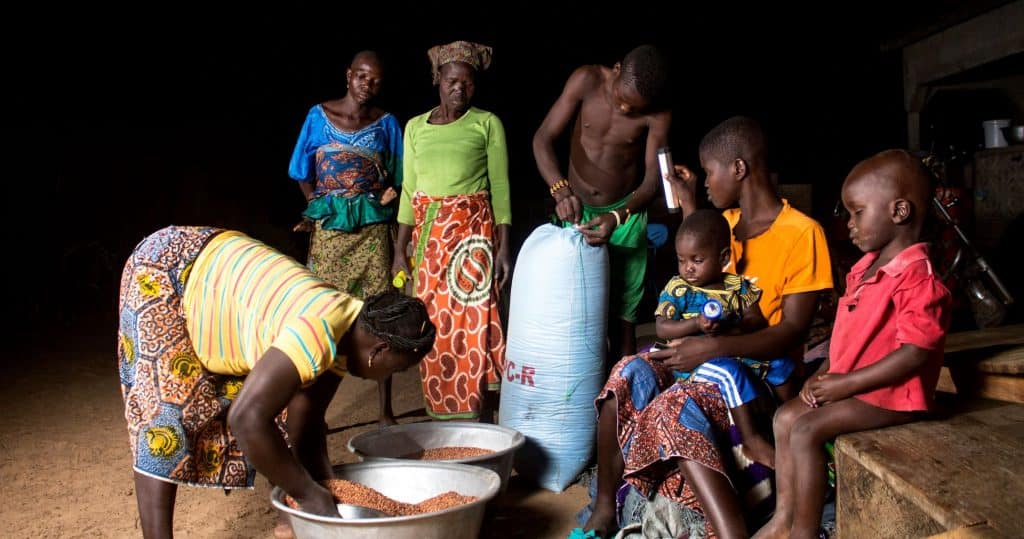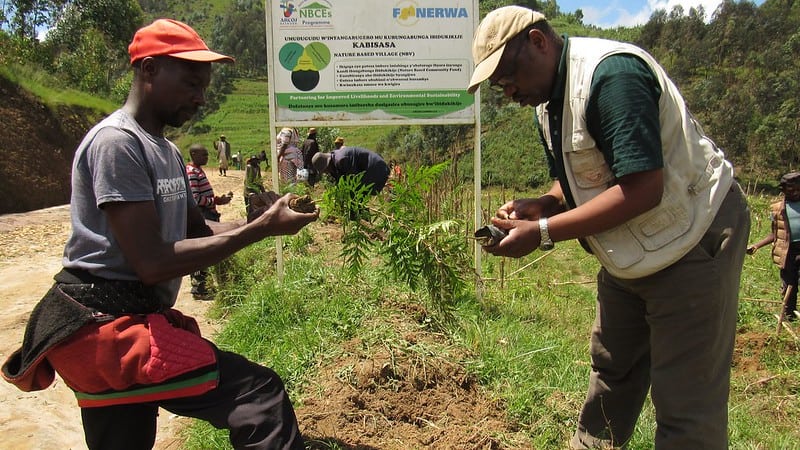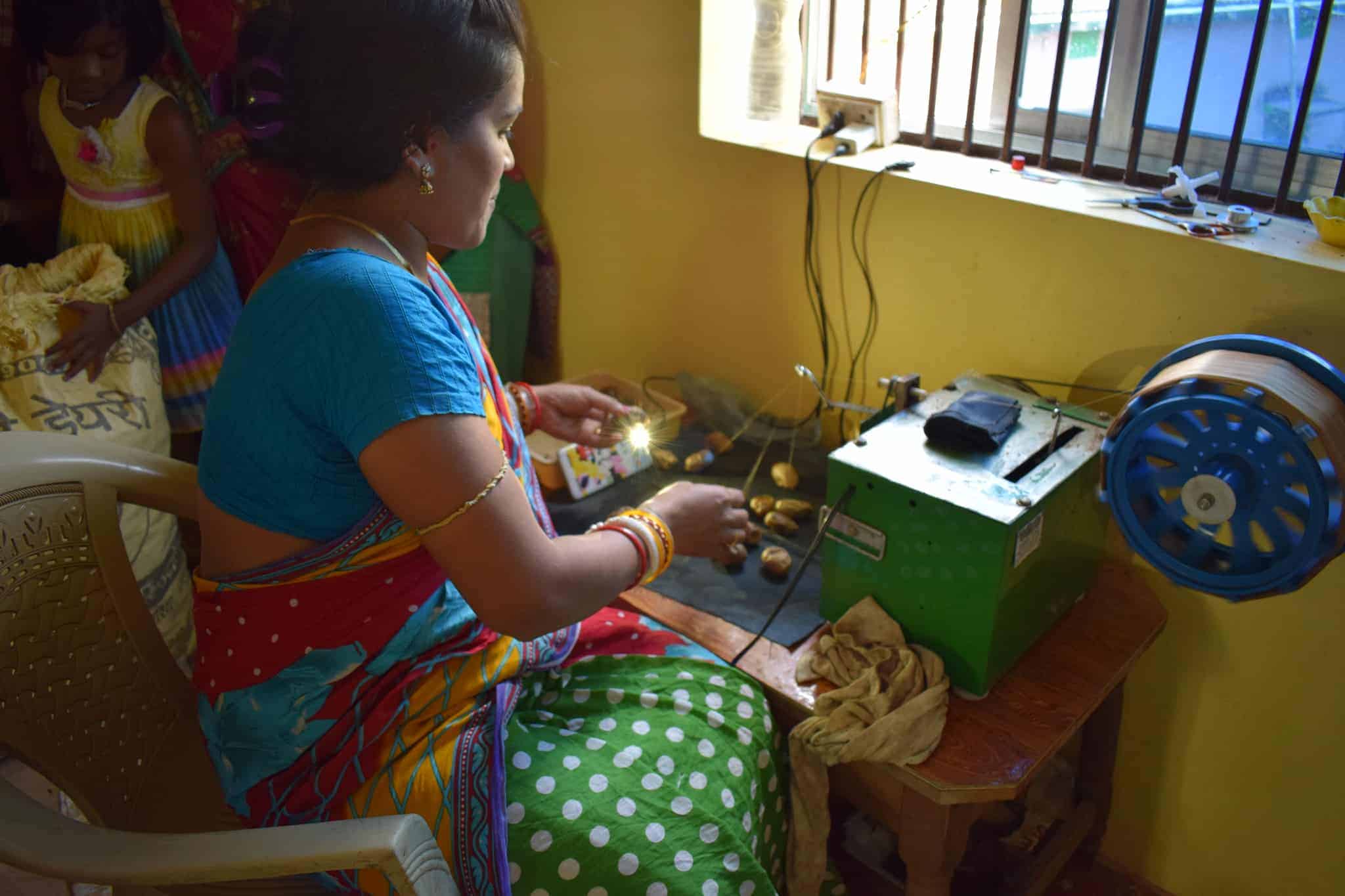Image: climate finance can support better work, such as solar-powered silk weaving made possible by innovator Resham Sutra.
This week’s Petersberg Climate Dialogue in Germany brings a rare opportunity for global leaders to step up their commitments to fight climate change and enable a green, resilient and inclusive future for all.
However, this greener future is looking more and more precarious. It won’t be realised unless world leaders urgently commit to pledges made in 2010 as part of the Cancun Agreements. There, rich nations promised that from 2020 they would provide USD 100 billion a year to developing countries to fight the climate crisis.
“So far the response has been lacklustre at best,” says Harriet Lamb, CEO of climate solutions charity Ashden. “In the lead up to COP26, these next few days could prove critical. The most important thing world leaders can do in Berlin this week is get this climate finance commitment back on track.”
Here are five key reasons why the climate finance targets could be game-changing:
Without the promised funds to poorer countries, the world won’t meet its climate targets
Developing countries see this USD 100 billion a year commitment to help them as essential for securing progress and meeting the goals of the Paris Agreement. It is a cornerstone of efforts to limit global warming to well below 2 degrees Celsius (preferably 1.5 degrees), compared to pre-industrial levels. Without this finance, low income countries cannot meet their climate targets. This will leave millions of people struggling for food and water, facing ever-more unstable weather, and finding it harder to make a living. Not to mention the damage to life-supporting biodiversity and ecosystems.
These funds are essential for low-income countries to experience a just transition
This financing is essential for developing countries to implement ambitious mitigation and adaptation plans. Acting as seed finance, it can help attract further investment needed to generate green skills, jobs and livelihoods. This financial support is needed now more than ever due to the devastation coronavirus has brought to public finances in less well-off nations.
Renewables growth in low or middle-income countries must and can happen at lightning speed. From 2018 to 2019, Mexico’s solar PV capacity almost doubled, from 2.5GW to 4.4GW. In the same period, jobs in the Philippines linked to the expanding solar industry grew from 20,800 to 33,700. But for this to happen globally at the speed required to keep climate change below 2 degrees, the world needs rapid investment strategies.
It’s time for countries to come together – and leaders to step up
2021 is a critical year for climate leadership, and the Petersberg Climate Dialogue is a prime opportunity to forge consensus about the collective commitment to climate action. To grow the trust between developing and developed countries climate finance targets must be strengthened and delivered, based on the needs of the recipient countries. This would strengthen the political consensus needed to navigate other difficult issues arising at the G7 and the upcoming international climate summit, COP26 due to be held in Glasgow in November. Indeed, as a co-host of the Petersberg Climate Dialogue, the UK could show leadership by reversing its damaging aid cuts.
Climate finance will power practical, proven solutions
Funding climate solutions in low-income countries means supporting the proven initiatives that are already bringing benefits such as new jobs, improved healthcare and greater gender equality. It means better lives for those most at risk of the damaging impacts of climate change, and those who are at risk of missing out on the opportunities brought by the transition to a low carbon economy.

It is the right thing to do
Climate change is primarily affecting those who’ve done the least to contribute to it, and who have the least resources to deal with it. The combined emissions of the richest 1% of the world’s people are more than those of the poorest 50%. But it is people with little access to savings, work and healthcare who will ultimately pay the highest price. Climate finance that pays for the world’s poorest to engage in climate adaption and mitigation activities would go some way to right this moral wrong.

The Albertine Rift Conservation Society works with 50,000 people from 280 community groups across Central and Eastern Africa. The society helps communities develop their businesses through a package of support including affordable finance.

